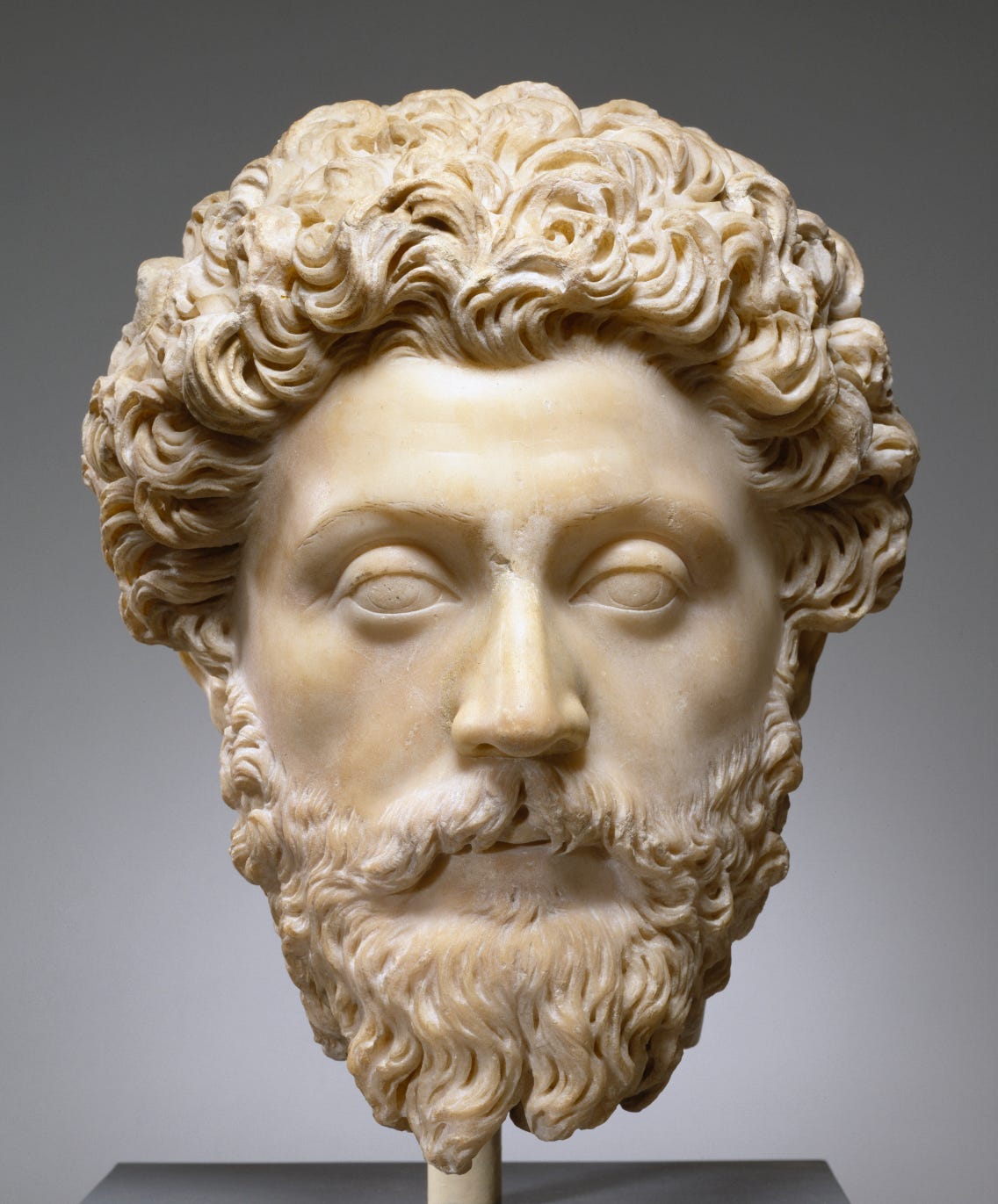Today, 7 March 2023, is the 1,862nd anniversary of the ascent to the Roman throne of Philosopher Emperor Marcus Aurelius. He was the last of the “Five Good Emperors” and the last Emperor in the Pax Romana, a time of peace and stability. (He’s Richard Harris in the 2000 film Gladiator).
I would like to think that, had I been a Roman Emperor - an alternative timeline I dwell on a lot - I would have been like Marcus Aurelius (though the truth is I would have been more like Hadrian: Hellenophile book worm, more interested in law than war, and with a strong connection to Newcastle…). He seems to have taken most seriously the weight of the Caesar’s crown, devoting himself to self-reflection and self improvement. And he is one of our major sources for the ancient form of stoic philosophy, a philosophy that appeals to me greatly.
The Meditations were never meant to be published: they were the Emperor’s own reflections on and for himself. Not self-indulgence, but an acknowledgment that to rule the world, one ought to be able to rule oneself. They were written mostly in Greek as “Τὰ εἰς ἑαυτόν”: lit. things to oneself.
I am struck by the similarities between ancient stoicism and eastern philosophies like Zen Buddhism. The latter teaches an inner peace, born out of a denial of separation between the self and the rest of the universe. It denies abstraction. It is, I think, about simply being at peace with the world as you find it.
Thus in the Heart Sutra:
Form is simply emptiness, emptiness simply Form;
Form is the same things as emptiness, emptiness the same thing as Form;
As much can be said of the other four aggregates -- feeling, perception, volition, and consciousness - all of these are simply empty
Then consider this from Marcus Aurelius
“As in the case of meat and similar eatables the thought strikes us: this is the dead body of a fish, this of a fowl or pig; and again that this Falernian is merely the juice of a grape-cluster, and this purple-edged robe is nought but sheep’s wool steeped in the blood of a shell-fish; or, of sexual intercourse, that it is merely internal attrition and the spasmodic excretion of mucus -- such, I say, as are these impression that get to grips with the actual things and enter into the hear of them, so as to see them as they really are, thus should it be thy life through, and where things look to be above measure convincing, laying them quite bare, behold their paltriness and strip off their conventional prestige1. For conceit is a past master in fallacies and, when thou flatterest thyself most that thou art engaged in worthy tasks, then art thou most of all deluded by it.
That is to say: strip away the bullshit and see things as they in fact are. Accept the world as you find it. Indeed, accept that you are no more than a sack of bones and blood, twisting up and down this mortal coil till you shuffle off it. Life becomes much easier to deal with that way.
I have taken comfort in my time from the Meditations (and the sutra and other Zen or stoic work). Some of it is a little “Live Laugh Love” / “It’s Prosecco O’Clock” but I think it’s right all the same. It comes with the authority of the most August.
For all this cogitation, remember that in the final episode of season 2 of Twin Peaks, Marcus Aurelius is quoted (praising Audrey's civil disobedience): “Waste no time arguing what a good man should be. Be one.”
Marcus Aurelius’s Meditations: I love them.
There’s another translation I like of this line: ‘all through our lives, when things lay claim to our trust, lay them bare and see how pointless they are: strip away the legend that encrusts them.’





